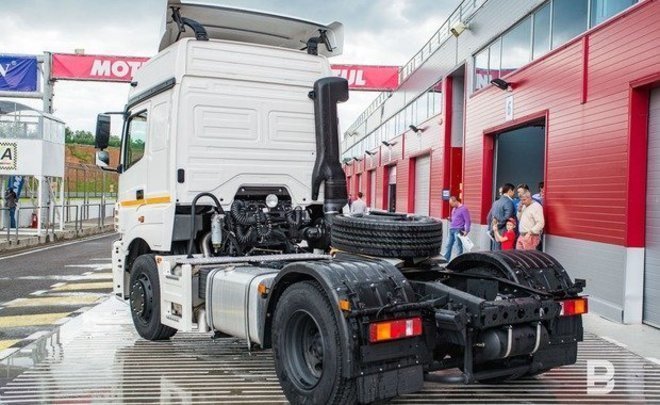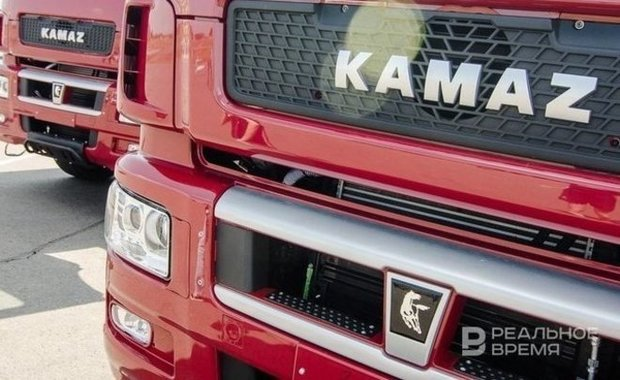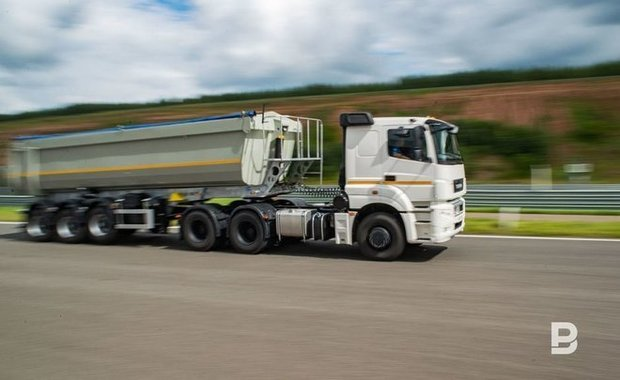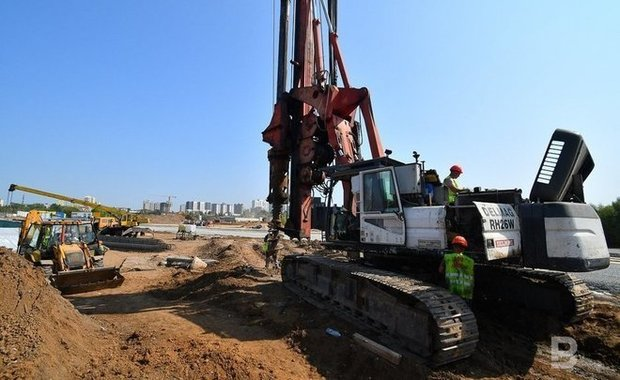Sergey Sotnikov: ‘Why build warehouses if there is going to be nothing to carry with soon?’

The Central Bank is going to rise third party liability insurance tariffs for lorries buses and road machinery from “unfriendly” countries seven times. The regulator named its decision as a retaliation measure to the refusal of some countries to accept Russian Green Card certificates. In an op-ed column for Realnoe Vremya, Chairman of the Committee for Logistics and Freight Transportation of the Tatarstan Chamber of Commerce and Industry Sergey Sotnikov explains consequences of this initiative, how the Russian transportation market is handling the shocks and why the refusal of the dependence of the sector on imports isn’t yet successful.
“Transportation costs rose by 30-50% in the last year”
I will start with the latest news in freight transportation — Russia is going to raise tariffs for transporters from the so-called “unfriendly” countries seven times. If we consider this event as one of the actions in the sanctions fight between Western states who are hostile to Russia and our country, perhaps, it is logical and already becomes ordinary in reply to the cancellation of Green Cards for our transport companies.

The imposed sanctions have changed all the logistics for the Russian sector of freight transportation. So what was built for decades has seen a new turf war in the last year — new routes, destinations are looked for, everything is changing. In fact, the switch to new routes has already happened, and I wouldn’t say this process was somewhat very painful. This was rather a psychological adaptation when something habitual had to change. Today we transport products, freight reaches its destination and we don’t see any collapse.
As for the transportation costs, undoubtedly, it has risen — by 30-50% depending on destinations. And the reason isn’t that Europe cancelled its Green Cards for us or imposed sanctions. The reasons are banal enough — longer routes, a higher price for cars and spare parts for them as well as a deficit of transport and constantly growing fuel price. These factors as a whole influence the price for goods and the end consumer.
“Russian producers aren’t trying to fill the vacant niche”
A shortage of new cars and staff is the main problem in the short term. Cars aren’t eternal and, of course, need to be replaced. Foreign producers left the Russian market and very surprisingly for many our Russian producers aren’t even trying to fill the vacant niche. Take same KAMAZ that is expected to ramp up the production of tractor units that the sector of freight transportation seriously needs. The amount of tractor units made today in Chelny is obviously not enough to meet the existing needs.

Also, the company’s pricing policy is surprising and make one indignant. KAMAZ freight transport is constantly appreciating. Last year, China’s Sitrak could be purchased for 7 million rubles, now it costs around 9 million, but our Tatarstan company’s tractor unit is several millions more expensive. What’s the sense if the consumer can count?
It turns out that there isn’t going to be any import substitution again — Chinese lorry producers will occupy the vacant niche.
During the previous years, everything was done in our country to make sure the market is in the hands of foreign producers. As a result, they owned 90% of tractor units. They are gone but the cars are left — they need to be serviced, repaired, purchased spare parts and you cannot buy them directly from the producer — only though parallel import, which is consequently added to the transportation expenses.
“Whatever that is made in Russia turns out to be more expensive than buying in China and delivering here, covering thousands of kilometres and then got the customs clearance — it will anyway be cheaper. Our Central Bank is so keen on inflation targeting but at the same time overlooks obvious things. Let’s simply have a look at the sale price of metal that suddenly doubled in price a few years ago. What objective reasons were there for this? What was the reaction of the regulator to the appreciation? Almost none, though dedicated defensive duties could have been imposed. But metal became costlier, automotive production began to be more expensive too.
If feedstock for key product manufacturers keep on rising ahead of inflation, we will never be able to raise our industry.

The same is for road construction. If our equipment for this sector costs huge money, if natural resources for road construction — sand or pebble — are also sold at a high price, here is the result. Road construction becomes more expensive year after year in Russia and logically this affects the economy. We cannot build roads where they are really needed, we cannot produce competitive products. If we come to think of this, who should keep an eye on it?
I am not yet talking about staff. This topic is painful almost for any sector of the economy, especially the industry. Factories need qualified staff. Where take them if vocational education is almost destroyed, the youth rushed to IT. But is IT the only production we have? Who is going to engineer planes, cars, produce other products? Unfortunately, the popularity of skilled jobs went into oblivion, today it is unfashionable and non-prestigious for the youth to work with their hands. But this is a topic for a separate talk and for the state’s systemic work on this problem. Producers, industrialists don’t cope with this today on their own.
When the whole country faced a mass of sanctions last year, everybody fussed first, started to think, make decisions, but a year later many calmed down, started to report that they would resolve all issues, overcome obstacles, solve problems. Have we solved all the problem? Today I think, and many will agree with me, our economy needs mobilisation — when all efforts of producers, businesses should be focused. We focus on this case, choose the most sectors for the economy and move in this direction. When we have it, it will get clear that Russia is focused on car or aviation engineering, infrastructure projects, in a word, in some anchor areas that will lead all other sectors of the economy.
Many have told off the planned economy since the start of Russia’s contemporary history. Though in general global companies, banks go by it — many have incredibly tough production or sales plans, moreover, not for a month but they have them spelt out for several years ahead, and only proportions of a per cent in the approved parameters can be edited. This is why I think today Russia also needs a plan for the future, the country needs to get a goal to pursue.

“We became fully dependent on imports”
Back to the problem of the domination of imports in freight transportation. Why was it bad that we switched to foreign machinery only? We became fully dependent: in fact, we don’t have the industry — we buy the finished product. We need equipment, we cannot transport goods in a cart and as transporters we say: “Give us machinery!” But here is nothing to give. And here China occupies this niche, and our automotive industry is losing time and the opportunity to create new lines and produce sought-after products. And warehouses are built here, billions are invested in in — entire Tatarstan is going to be full of them. Why do we need warehouses if there is going to be nothing to carry with soon? To bring products from China?
We are investing money in the economy of another country to simplify the delivery of a product that is competitive for us
From a perspective of PR, everything is amazing, and from a perspective of the creation of jobs, it is ineffective investments. Working in a warehouse isn’t highly-qualified labour, and it doesn’t need hundreds and thousands of employees. What is the economic effect of the operation of this warehouse a year later? Will the investment pay back? If these tens of billions were invested in the development of production, construction of shops, purchase of equipment and the start of, for instance, the production of spare parts or other products we are now bringing from China en masse, I would applaud on foot. It is necessary to create conditions so that filters or shock absorbers for cars are created, not bring them travelling thousands of kilometres. If we have such factories, this will create an accumulative effect.
Today society hugely needs a breakdown in the choice of wrong areas, an era of massive and unlimited consumerism. We need the youth to have the future, so that kids want to do good and necessary things for the country, so that a person with three kids isn’t poor.
To sum up, the sector of car transportation, in fact, was created almost from scratch, from zero since the dissolution of the USSR, without state support. Entrepreneurs were the first in this sphere to assemble KAMAZ lorries piece by piece, bought second-hand foreign lorries, and this area gradually took share, this experience is our trump card. People who raised this business from scratch have gone through several economic crises — they are hard to break. This is why our market adapts and adjust in any conditions, and if some difficulties arise, a new road is found two or three months later. This is why I think the sector of freight transportation in Russia should become one of anchors in the state’s economy.
Reference
The author’s opinion does not necessarily coincide with the position of Realnoe Vremya’s editorial board.